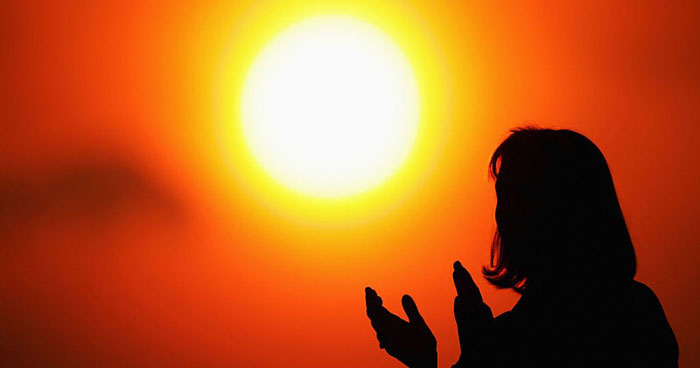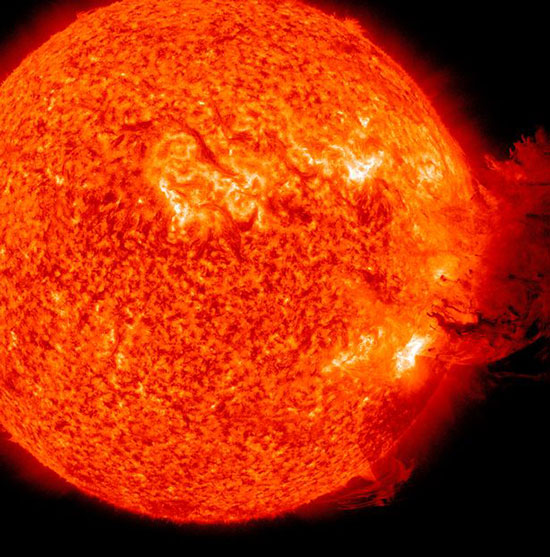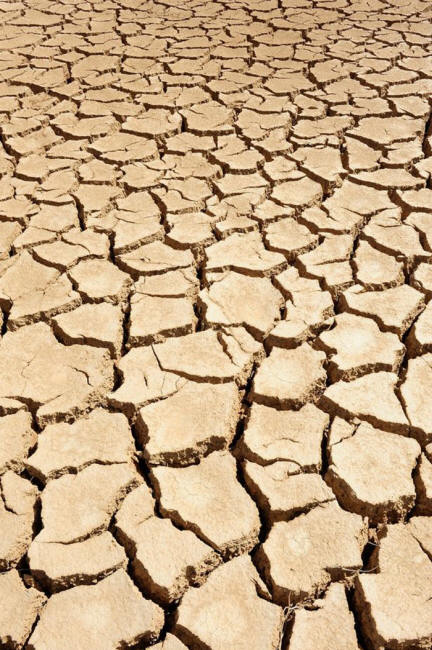|

by Paul Joseph Watson
May 14, 2020
from
SummitNews Website

Andy Lyons/Getty Images
What
happened
to 'global
warming'...?
The Sun is entering a period of "solar
minimum" that could cause temperatures to plummet by up
to 2ºC over 20 years and trigger a global famine, according to
experts.
Solar activity has entered a deep decline with scientists saying
there have already been 100 days this year where the sun has
displayed zero sunspots.
NASA
boffins say this means that the
earth could be about to experience a new "Dalton
Minimum," the period between 1790 and 1830 which led to a
severe prolonged cold snap and massive volcanic eruptions.
"This means were
could be entering one of the deepest period of sunshine
recession which could trigger long periods of cold, famine and
other issues," reports the Daily Star (below
report).
The Sun has now recorded
two consecutive years of record setting spotlessness, being blank
77% of the time in 2019 and 76% of the time so far this year.
This means a deep solar minimum is coming which will cause
temperatures to drop drastically...
This once again serves as a reminder that
the Sun is by far the most
influential driver of climate and makes the impact of so-called
man-made climate change look tame in comparison.
How are institutions
of science, academia and media that have fully committed to the
notion that
anthropogenic global warming
will cause environmental devastation going to react when the
globe starts rapidly cooling?
Scientists warn of
Freezing Weather, Famine and Earthquakes as...
Sun goes into 'Lockdown'
by Unzela
Khan
May 14, 2020
from
DailyStar Website

The Sun
is entering
a
period of "solar minimum"
(Image:
Getty Images/Stocktrek Images)
As the world is
on lockdown
to control
the coronavirus pandemic,
the sun is going
through its own lockdown
and it enters a
period of
"solar minimum"
and its activity
decreases...
It's not just the world that's gone into lockdown, the sun's
activity has also fallen and scientists warn this could cause
freezing weather, earthquakes and famine.
As the Sun enters a period of "solar minimum" its activity has
decreased, scientists report there have already been 100 days where
the sun has displayed zero sunspots.
Sunspots are,
"cool planet-sized
areas on the sun where intense magnetic loops poke through the
star's visible surface,"
explains Spaceweather.
This means were could be
entering one of the deepest period of sunshine recession which could
trigger long periods of cold, famine and other issues.
Astronomer Dr Tony Phillips said:
"Solar
Minimum is under way, and it's a deep one.
"Sunspot counts suggest it is one of the deepest of the past
century. The sun's magnetic field has become weak, allowing
extra
cosmic rays into the solar
system.
"Excess cosmic rays pose a health hazard to astronauts and polar
air travelers, affect the electro-chemistry of Earth's upper
atmosphere, and may help trigger lightning."
Source
The world could suffer
from famine as temperatures plummet by up to 2ºC over 20 years,
reports The Sun.

The world could suffer from
extremely cold temperatures
(Image:
Getty Images)
Spaceweather
reveals:
"So far this year,
the Sun has been blank 76% of the time, a rate surpassed only
once before in the Space Age. Last year, 2019, the Sun was blank
77% of the time.
"Two consecutive years of record-setting spotlessness adds up to
a very deep solar minimum, indeed."
It has been reported by
The Sun, NASA scientists fear a repeat of,
the 1790 and 1830 "Dalton
Minimum" which led to a period of intense cold and
powerful volcanic eruptions.
The sun recession led to a devastating volcanic eruption in
2,000 years in 1816 in Indonesia, which killed 71,000 people.
Although the last solar
minimum occurred in 2013-2014, it was ranked among the weak.
| 



